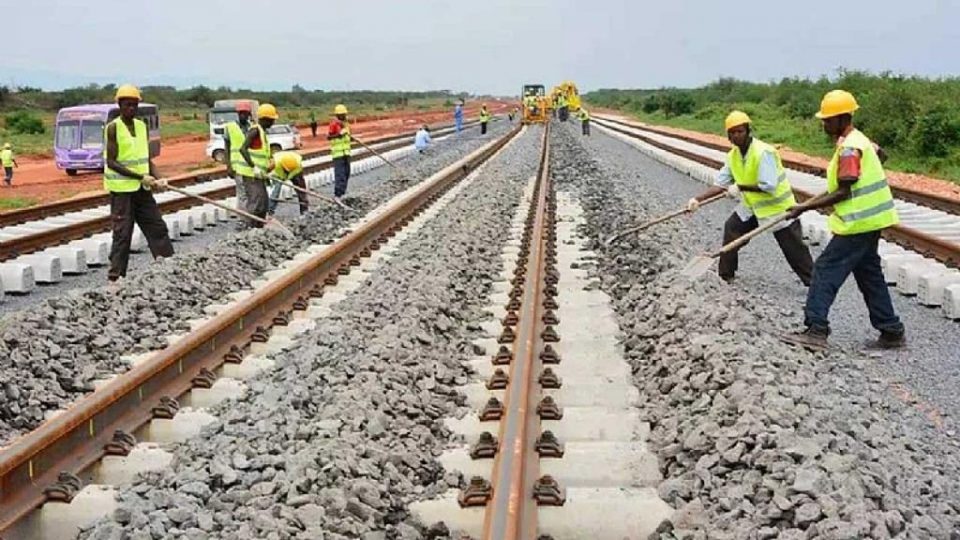
Work on the $1.96 billion Kano-Maradi rail project has picked up momentum, despite recent tensions between the Nigerian Federal Government and Niger’s military junta. This development follows a period of stagnation, with accusations from Niger’s government that the Bola Tinubu administration was plotting to destabilize the francophone nation.
The rail project, partially funded by the African Development Bank (AfDB), spans 283.75 kilometers and traverses 122 communities in 25 Local Government Areas across Kano, Katsina, and Jigawa states in Nigeria, as well as 11 communities in three communes in Niger. Approved by the Federal Executive Council in September 2020, the standard gauge railway aims to enhance regional trade and connectivity. The project is slated for completion in 2026.
Displacement and Compensation Issues
Investigations by The PUNCH reveal that 3,252 displaced persons are yet to receive compensation, three years into the project. These include farmers and residents whose properties lie along the rail corridor. A settlement audit by project consultant Windforce Safeguards Limited highlights that 12,695 homes and 2,064 assets were affected, with N20.325 billion earmarked for asset valuation. However, only N12.307 billion has been disbursed to 16,032 out of the 19,284 enumerated persons.
Concerns over compensation inadequacies persist. For instance, Babangida Idris from Garo, Katsina State, lamented delays:
“I and seven other affected persons were invited to the palace of our district head where the officials promised to ensure that we get our compensation within the shortest time possible. This is the third month since we had the meeting, but not a kobo has been given to the eight of us,” he said.
Similarly, Alhaji Nuhu Idi of Dokawa village in Katsina State criticised the low payments, noting that N60,000 was deducted as bank charges from the N500,000 he and another farmer shared.
Audit Findings and Recommendations
A settlement audit report released in September 2024 revealed several discrepancies in the compensation process:
- Valuation Methodology: Compensation was based on a ‘depreciation valuation method,’ contrary to the ‘replacement valuation method’ stipulated in AfDB policy. This impoverished Project Affected Persons (PAPs) further, violating Sustainable Development Goals (SDGs).
- Transparency Issues: Most PAPs learned of their compensation amounts only at disbursement. Additionally, no negotiations occurred, and affected assets were not geo-referenced.
- Delays and Omissions: New PAPs from realigned areas like Yan Zaki, Unguwan Kusa, Makurda, and Durbi communities remain uncompensated.
The audit recommended transparent negotiations and adherence to AfDB’s individual agreement form to address grievances.
Mixed Reactions from Communities
While some residents expressed satisfaction with the compensation, others raised concerns:
- Ibrahim Abubakar from Yanzaki, Jigawa State, confirmed receiving fair compensation.
- Muhammadu Hamisu, head of Kayauki village in Katsina State, noted that all affected farmers in his area had been compensated satisfactorily.
- In contrast, Adamu Abdullahi from Kadandani, Kano State, stated that compensation for recently measured farmlands was still pending.
Progress on Construction
Despite these challenges, significant progress has been observed on the rail project. Residents of Kwanar Dangora in Kano State reported resumed work after a temporary suspension. In Jigawa State, construction activities are in full swing, with locals optimistic about the project’s benefits.
Malam Musa, a Dundubus resident, expressed hope:
“It’s our hope that the project would bring economic benefits and improve transportation in the region.”
Similarly, traders like Nura Garba from Sabon Garin Dan Malam anticipate better logistics and increased business opportunities.
The Road Ahead
The Kano-Maradi rail project, hailed as a potential game-changer for regional trade, faces significant hurdles in addressing compensation disputes and adhering to international standards. As construction progresses, stakeholders must prioritize the concerns of affected communities to ensure the project’s long-term success and sustainability.
